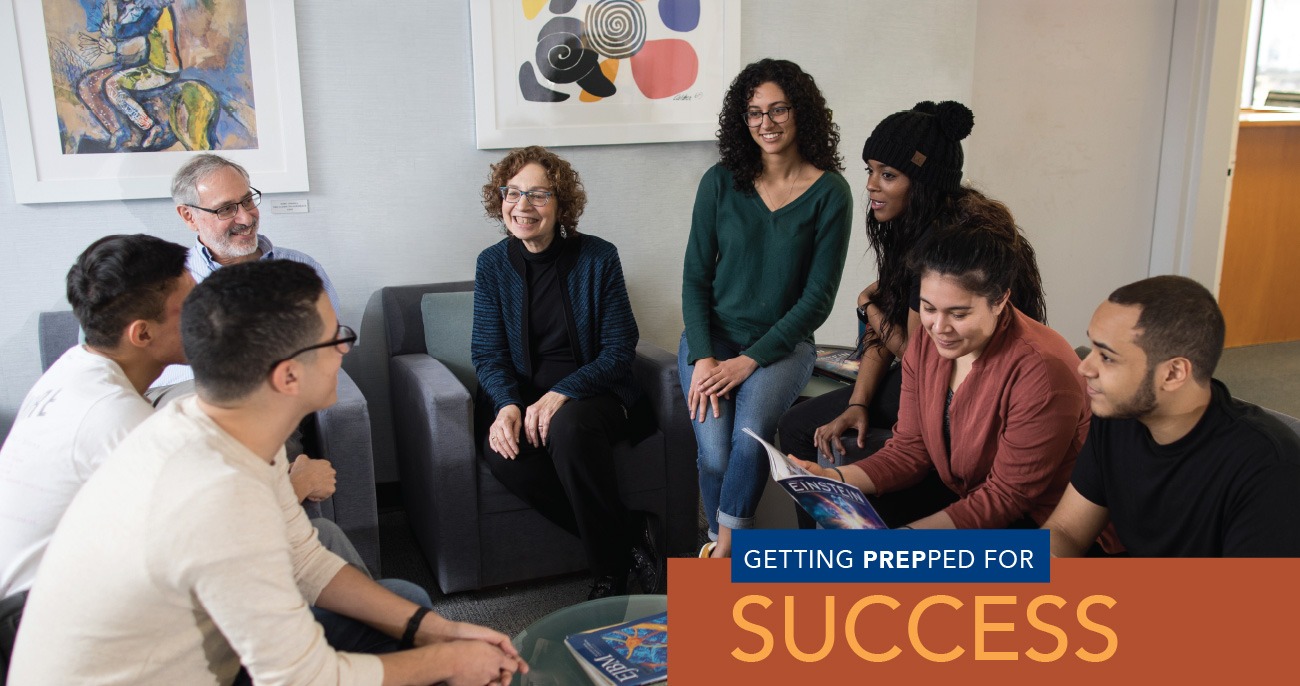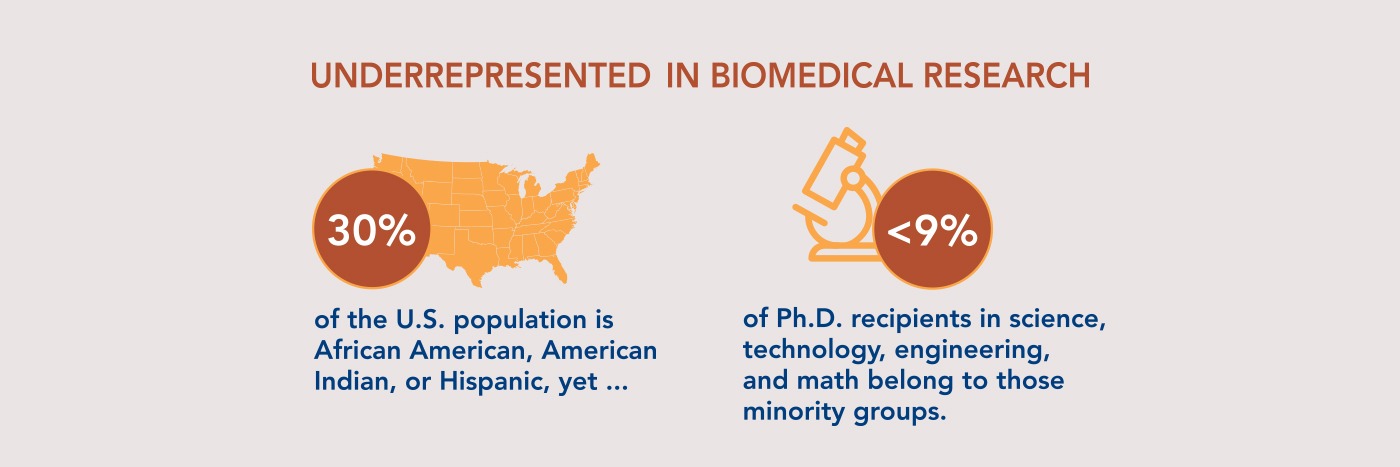
When Schnaude Dorizan was a senior at the University of Maryland, Baltimore County, she thought her good grades and double major in biology and psychology would ensure her admission to a neuroscience graduate school program—until all eight schools she applied to rejected her.
A professor said her lack of lab research experience was the likely culprit, and suggested she look into the Postbaccalaureate Research Education Program, commonly known as PREP, offered at certain universities and medical schools and funded by the National Institutes of Health (NIH).

The PREP program has definitely helped me decide what type of research I want to focus on. And it has made me confident in my ability to pursue a scientific career.
– Leandrew Daily, PREP scholar
Dr. Akabas and Dr. Freedman also help us with personal issues, because they know training for our future is more complicated than just science and data.
– Marcel Malena, PREP scholar
All 21 candidates who’ve completed Einstein’s PREP program have been accepted to grad school. Ms. Dorizan, for example, is now in her fourth year in the interdepartmental neuroscience graduate program at Northwestern University in Chicago.
“Pursuing my PREP research project, presenting my research at conferences, learning how to ask questions at seminars, and talking about my work with other scientists gave me the preparation I needed to set myself up for success in graduate school,” says the 27-year-old.
“Graduate schools aren’t looking for students who have memorized information—they want students who are excited about science and know how to tackle a research project, and that’s what I got from Einstein,” she adds. “I’m in an amazing neuroscience program, and I would not be here without PREP.”
Einstein offers several “pipeline” initiatives aimed at increasing diversity and promoting inclusion in the medical and science workforce. But the Postbaccalaureate Research Education Program (PREP) is the only one that focuses on bridging the gap between undergraduate and graduate programs in the biomedical sciences.
PREP and the other programs are important for addressing long-standing inequalities, “but they also lead to better science,” says Victoria Freedman, Ph.D., Einstein’s co-director of the PREP program.
Libusha Kelly, Ph.D., a mentor to one of this year’s PREP students, agrees. “Science needs a diversity of viewpoints to keep making groundbreaking discoveries,” she says. “If you only support people coming out of the same schools, the same labs, you’ll never get the kind of creativity that comes from interactions between people with different backgrounds, different training, different ideas. We need to do this at all levels.”